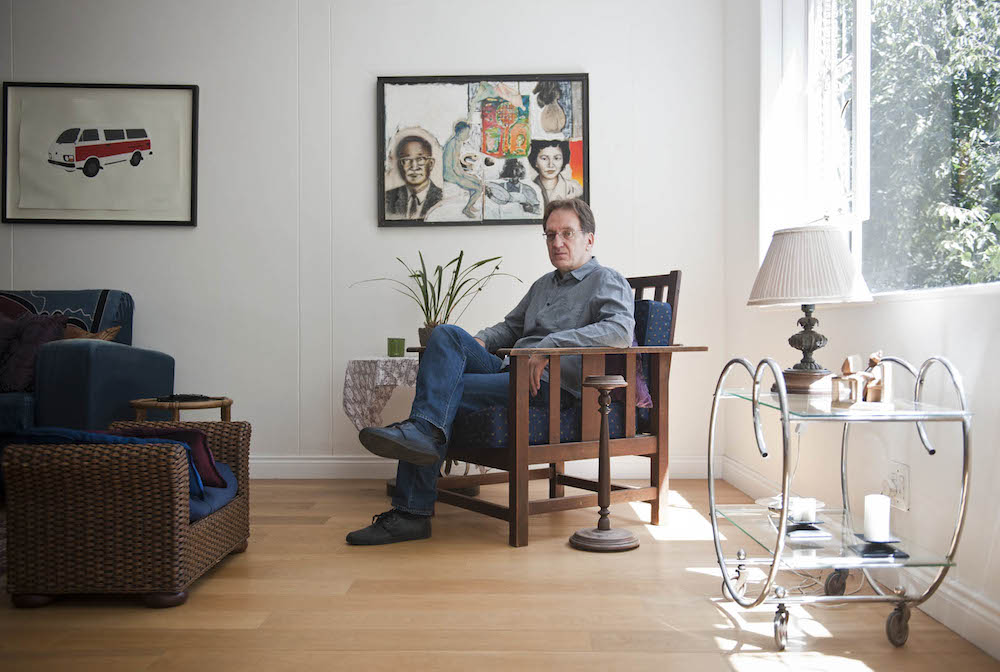Ivan Vladislavi? is finally finding international recognition.
The award of the R1.5-million Windham Campbell prize for fiction to Ivan Vladislavi? confirms a successful trajectory for his extended career in “marginal spaces” – also the title of an academic book on the author.
That Vladislavi?’s work has taken a long time – more than 20 years – to find resounding international recognition shouldn’t be too surprising.
His writing has never pandered to the prosaic or the obvious, or any other clear-cut category of reception. It has been, from the start, very worldly and also very local, more surreal than realist (especially the early work), and never easy to pin down.
As such, Vladislavi?’s early stories, contained in Missing Persons (1989) (reissued as Flashback Hotel in 2010), and Propaganda by Monuments and Other Stories (1996) took significant artistic risks.
The critical atmosphere at that time crackled with social realism and materialist gravity. You didn’t want to be caught in public committing self-reflexive irony or seem to be ducking the severity of apartheid.
Puncturing postures, however, was exactly what Vladislavi? began doing right from the start, for purposes that critics would eventually realise were as “subversive” as the work of any struggle writer, only in a different register. This register was not something to which many readers at the time, reading all that grave stuff, were overly accustomed.
“South African Lit” was immersed in Nadine Gordimer and JM Coetzee, André Brink and Mongane Wally Serote, Breyten Breytenbach and Mafika Gwala.

Vladislavi?, on the other hand, was reading Italo Calvino and Elias Canetti, and his version of anti-apartheid writing brought a whole new dimension to South African letters.
His early stories served as an introduction to literary “postmodernism” – after Afrikaans writer Koos Prinsloo had set a similar trend with his oblique stories in Afrikaans – and for many it took some swallowing.
I vividly remember my amazement, reading those stories in their first life under the imprint of David Philip’s Africasouth series, when the “prime minister” (images of PW Botha sprang to mind) reaches out through a TV set and extends his “chubby hand” to a suburban character called Quentin.
Not to be outdone, this classic Vladislavi? double slips his own hand through the “warm custard” of the TV screen and “jerks” the prime minister “out of the box”. What follows is a comic rout with riotous undertones. The subversion was less a matter of mimesis – a mirror held up to society for the sake of witnessing human rights assaults – than an assault on conventional, ossified perceptions of the real.
In Vladislavi?’s hands, the real turns out to be just as strange as his fictions, tinkered together from combinations as unlikely as the TV duo of anchor Michael de Morgan and his co-cult-figure on SABC TV in the 1980s, PW Botha. If ever two people deserved to be caged and teased, it was those two. And Vladislavi? went right ahead and did it.
This tendency, in which quirky details such as vibracrete walls, cold- water Omo and Cadac gas, in all their “local” banality, are brought into reconfigured imaginative life, shows throughout Vladislavi?’s oeuvre. His nonfiction tour de force, Portrait with Keys (2006), models in its narrative shape the jarring (dis)continuities of Johannesburg, and his fictions Double Negative (2011) and The Exploded View (2004) render the visual mash-up of post-apartheid in immaculately poised prose.
Teju Cole wrote the introduction for the London reissue of Double Negative, and Geoff Dyer is a fan. International judges and critics have also begun to recognise that Vladislavi? need not live in the shadow of JM Coetzee. The moment could not have come sooner.
Leon de Kock is emeritus professor of English at Stellenbosch University, and senior research associate at the University of Johannesburg